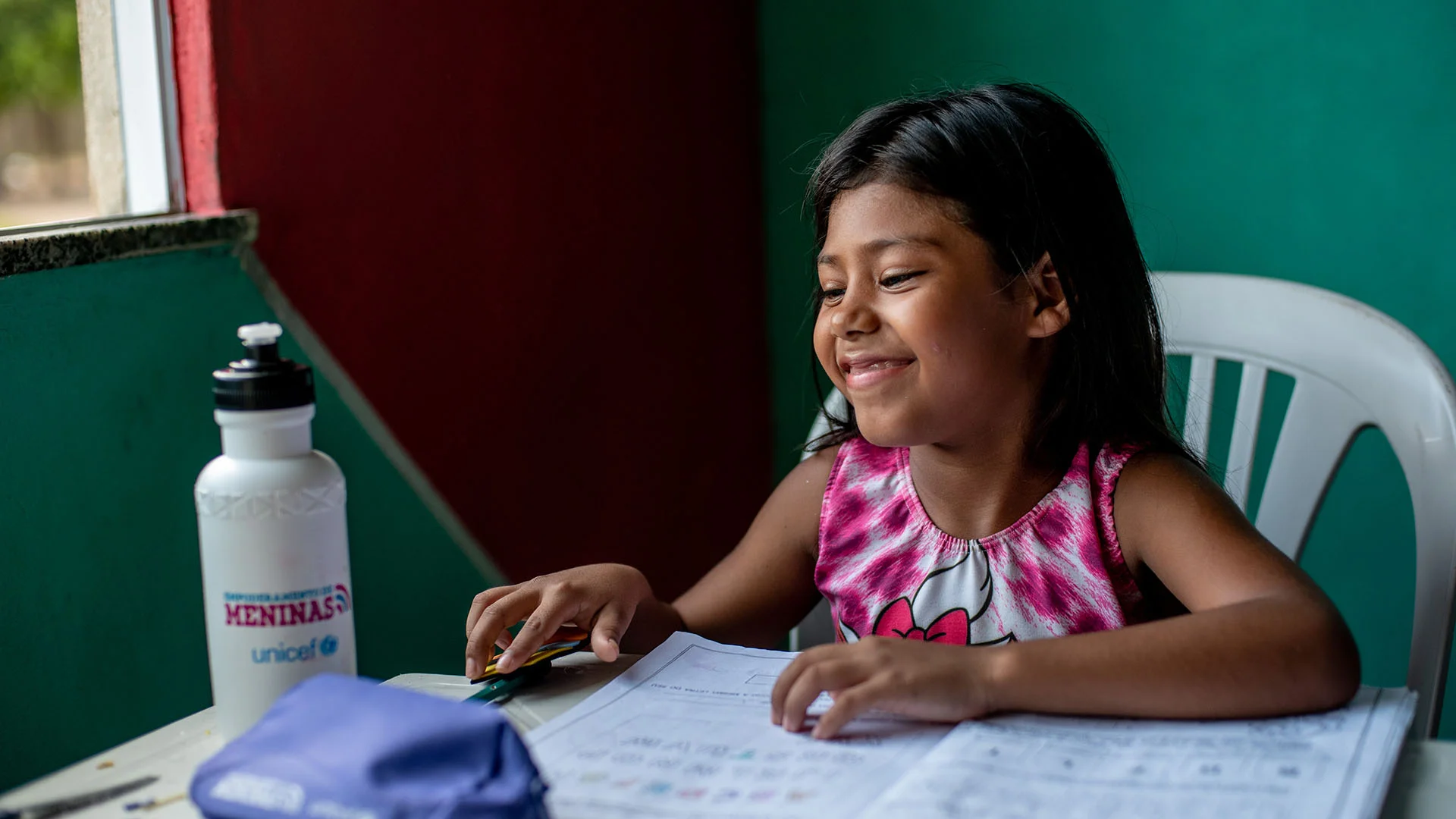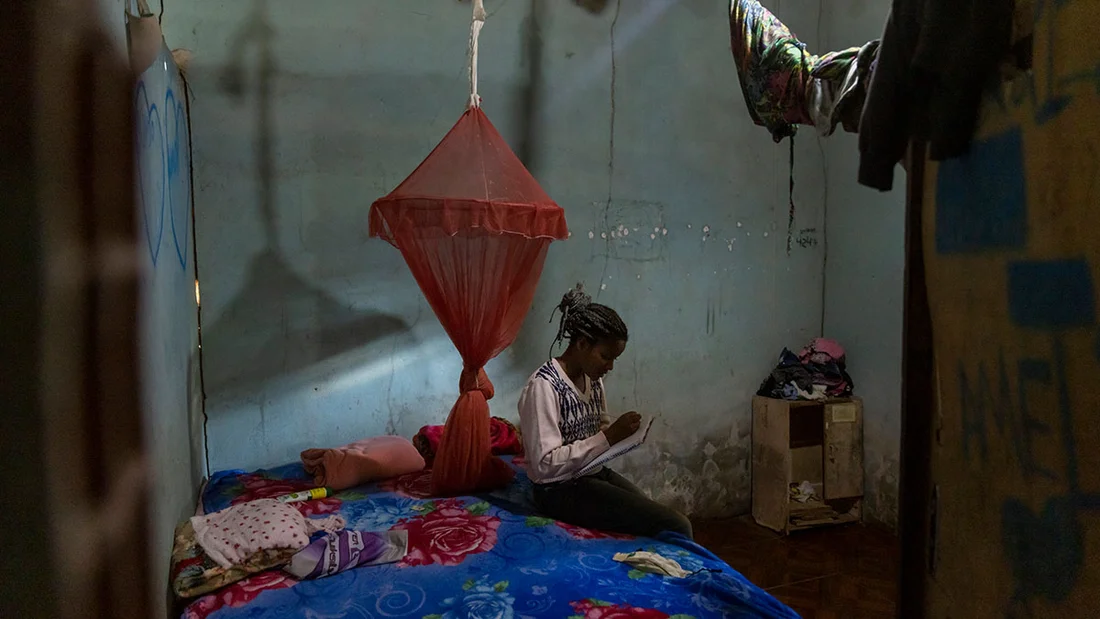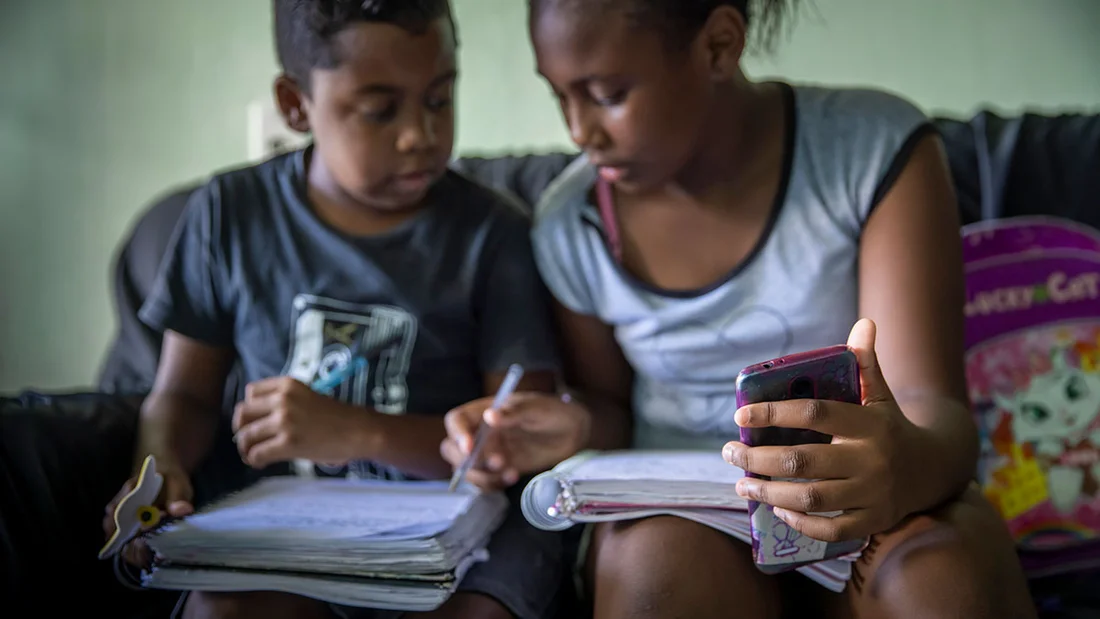In many areas of Brazil, children cannot exercise their right to an education – for various reasons. Children in Switzerland and in Liechtenstein did something to change that by collecting money during the 2021 Star Weeks.
Hundreds of thousands of girls and boys in South America’s largest country are being denied their right to education. Due to the pandemic and resulting school closures, more than 44 million Brazilian girls and boys were unable to attend school in 2020, and 5.5 million children and young people had no access to school activities at all, either in print or digital form, in class or remotely.
Children in Brazil’s north and in poor neighborhoods outside the cities, the so-called favelas, are particularly at risk of dropping out of school. Many children work to make ends meet, often under dangerous and exploitative conditions, keeping them away from school. These children are denied the chance to enjoy a sheltered and healthy childhood.

Ágata from the Amazon
To prevent school dropouts during the pandemic, teachers in the municipality of Vigia in the northern Brazilian state of Pará sought out every child who could not attend class. Eight-year-old Ágata was one of them. She had been out of school for a year and has now been re-enrolled so that she can continue learning remotely during the pandemic.
What UNICEF has achieved thanks to your help
This program aimed to help provide access to quality education for children aged 7 to 12 in the Amazon region and in the poor neighborhoods of Rio de Janeiro.
The program was built on two strategies:
- Connectivity: The program promotes and expands connectivity in public schools by creating infrastructure for selected schools to allow for the pedagogical use of hybrid and digital learning practices.
- Digital culture and hybrid learning: The development of pedagogical materials in cooperation with the local parent-teacher organization to support schools in creating digital and hybrid learning experiences.
Through the support of its local partners, UNICEF
- reached 4,237 students through the program;
- equipped 20 public schools in remote areas with technology (internet installation; increasing internet speed where access already existed; installation of routers);
- developed educational material for training teachers in digital and hybrid learning;
- mobilized civil society and the government to support implementation of the project;
- trained 100 teachers;
- involved students in digital educational projects.


